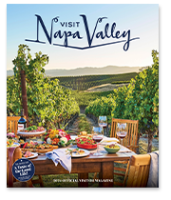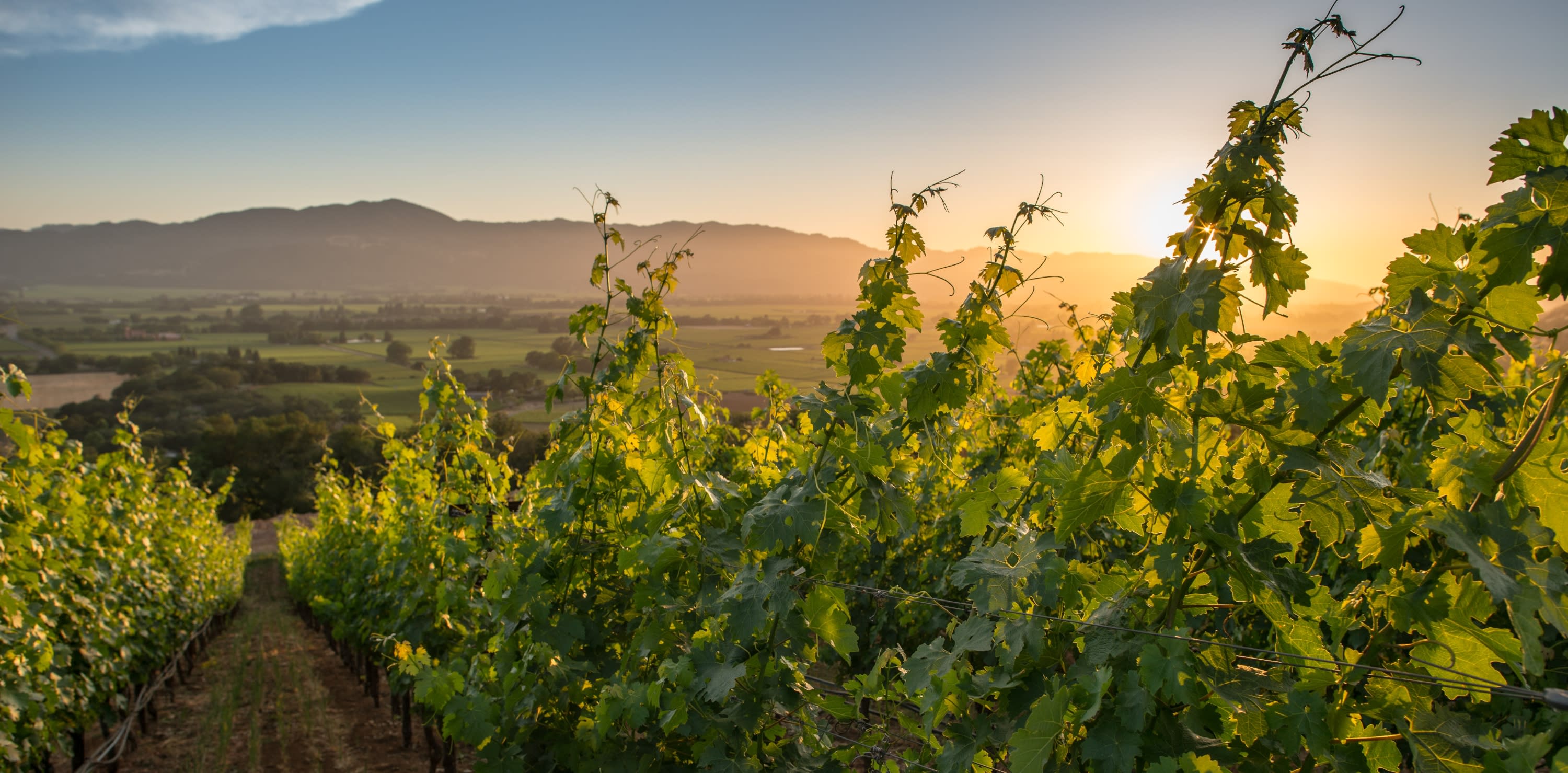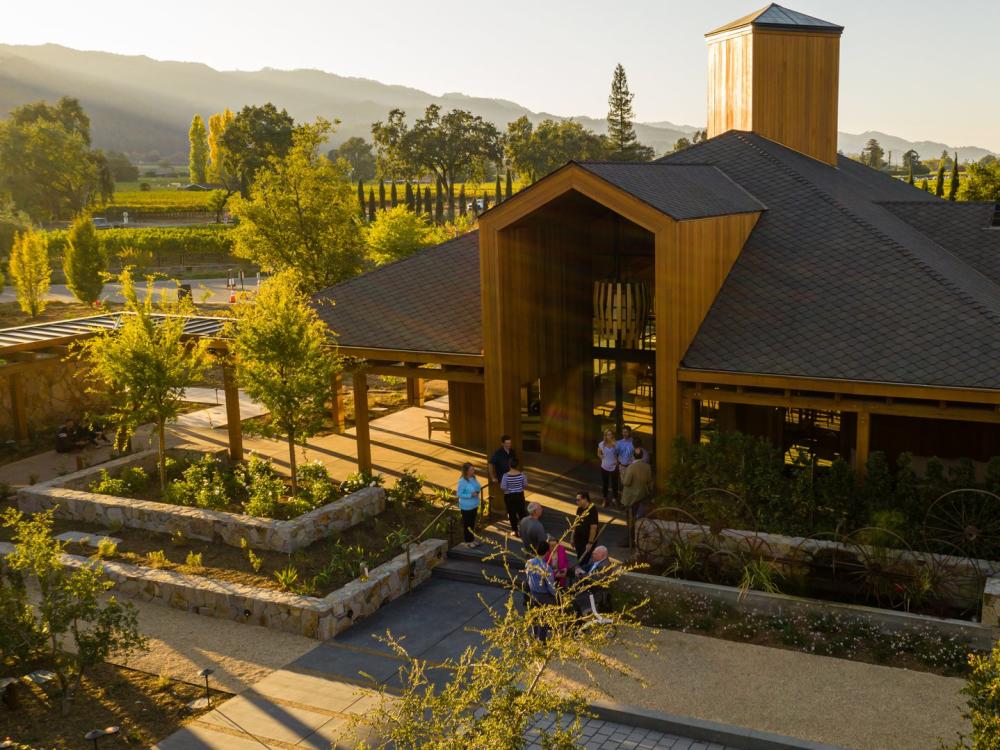Napa Valley is just 35 miles long and 5 miles wide, but for such a small place we have a rich history of being on the forefront of sustainability and environmental preservation. Back in 1968 Napa Valley was designated as the United States’ first ever agricultural preserve, ensuring that Napa Valley would be protected and preserved for generations to come.
Today, everyone wants to be sustainable, but it can be hard to pinpoint what sustainability actually means – and who’s actually doing it well. That’s why the Napa Valley Vintners established Napa Green, which created the Napa Green Vineyard and Napa Green Winery certifications. That means that you can easily identify grape growers and wineries who’ve invested deeply in all aspects of sustainability, from energy and water efficiency to social equity and climate action.
There are more than 90 Napa Green Certified Wineries, representing 40% of all of the certified sustainable wineries in California, and 34% of all of the certified sustainable wineries in the United States.
In addition to Napa Green certification, here are a few other terms you might see:
Natural – Natural wine typically references low-intervention wine where no herbicides or pesticides are used in the vineyard, and no additives have been added in the winemaking process. Natural wines also tend to be unfiltered and have low or no sulfites to preserve the product as its bottle.
Organic – An organic listing on a wine label means one of two things: It’s either made from organically grown grapes, without any added sulfites, or it’s made from certified organically grown grapes, avoiding all synthetic pesticides.
Biodynamic – This technique is similar to organic farming in that it avoids synthetic chemicals, but it also views the vineyard as an entire ecosystem, observing factors such as astrological influences and lunar cycles. Biodynamic wines are also made without common manipulations such as yeast additions or acidity adjustments.
LEED certification – This certification indicates that the winery itself has been built and is operated in an ecologically sound manner. LEED (Leadership in Energy and Environmental Design) is the most widely used green building rating system in the world and recognizes five key areas of human and environmental health: sustainable site development, water savings, energy efficiency, material selection, and indoor environmental quality.

Grgich Hills Estate
Napa Valley Sustainable Wineries
Here are just a few Napa Green Certified Wineries dedicated to sustainability that you'll want to visit:
Grgich Hills Estate
A 2024 winner of the Great Wine Capitals Sustainable Wine Tourism Practices, Grgich Hills Estate has made the transition first to organic and biodynamic farming and then to attain Regenerative Organic Certification. They have employed groundbreaking sustainable practices in wine and the environment, as well as their community to help future generations, and to be stewards of the land in a way that not only respects the earth but also works to revitalize and heal it. Their regenerative farming practices include keeping groundwater as clean as possible, reducing carbon emissions by sequestering carbon in the soil, and providing economic stability and a healthy work environment to their vineyard and winery workers.
Bennett Lane Winery
Bennett Lane Winery is Napa Valley’s northernmost winery and has taken active steps to invest in sustainable winemaking. From their cover crops to their composting, the vineyard team works hard to ensure that everything that is produced by the winemaking process goes back into the vineyard to create a true 360 degree approach to sustainable farming.
Cakebread Cellars
Cakebread Cellars has been a Napa Green Certified Winery since 2008 – only the second winery ever to receive the distinction. In 2010, the winery’s team reduced total waste by 12 percent and recycled 81 percent of its total waste. All of its vineyards have been certified in the Napa Green Land program, promoting sustainable farming practices, restoring fish and wildlife habitats, and improving water quality in local streams. In 2010, Cakebread Cellars’ Suscol Springs Vineyard was the first vineyard presented with a sustainability award by the Napa County Resource Conservation District and received recognition as a model hillside vineyard development.
Clif Family Winery
In 2022, Clif Family became a Certified B Corporation. Sustainability is part of their DNA and their motto is to Think Like a Tree. This means supporting organic food and farming, sustainable production, zero waste, and conserving and restoring our natural resources. Guided by regenerative agricultural principles such as no-till cultivation, perennial cover crops, and thoughtfully managed sheep grazing, their practices emphasize soil vitality and carbon emission reduction. All their facilities and vineyards operate on 100% renewable electricity, and over 90 acres of vineyards and 10 acres of vegetables, fruit orchards, and olive groves are certified organic by CCOF.
Joseph Phelps Vineyards
Joseph Phelps Vineyards has been at the forefront of sustainability for decades. Not only do they invest in sustainable farming practices and foster biodiversity within the vineyard, but they also have offset a majority of their energy needs with an investment in solar panels. The Phelps Foundation has also donated land for farmworker housing, ensuring the crucial members of Napa Valley’s community have a safe place to live.
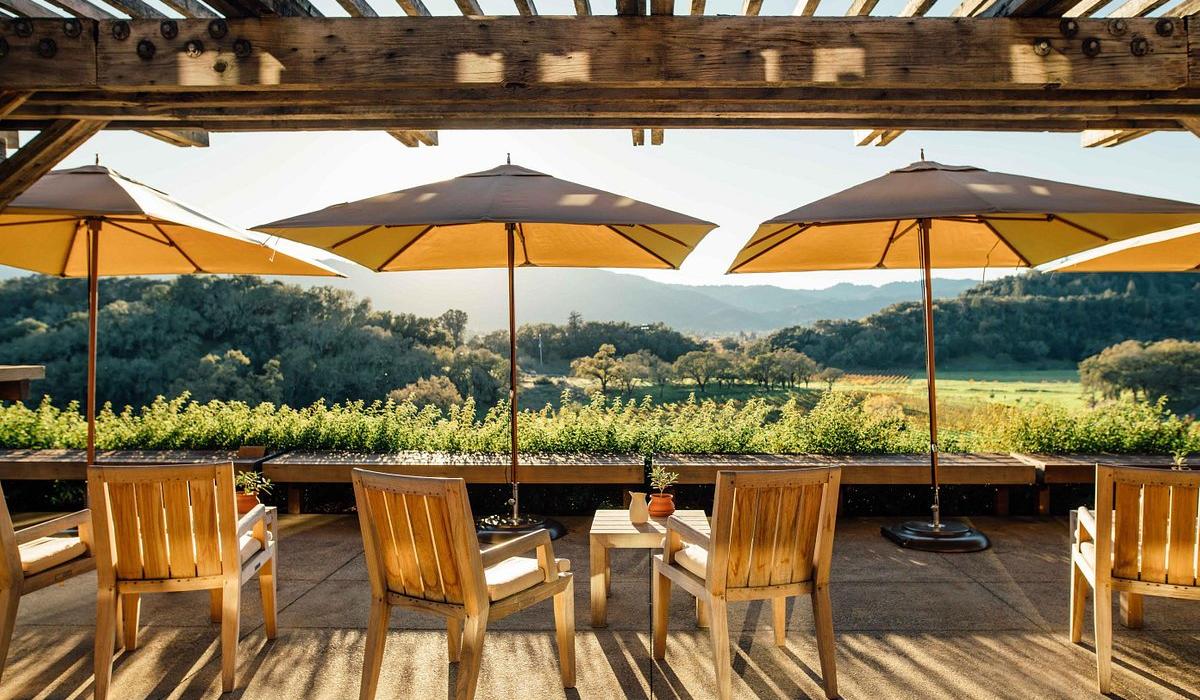
Joseph Phelps Vineyards
St. Supéry Estate Vineyards and Winery
As a Napa Green Land and Winery, St. Supéry Estate Vineyards and Winery has left more than two-thirds of its 1530+ acres untouched, encouraging biodiversity through a variety of plants and wildlife, integrated pest management, and composting. Over the past three years, the winery has reduced its water usage by 50 percent and its solar panels have saved 923 tons of CO2.
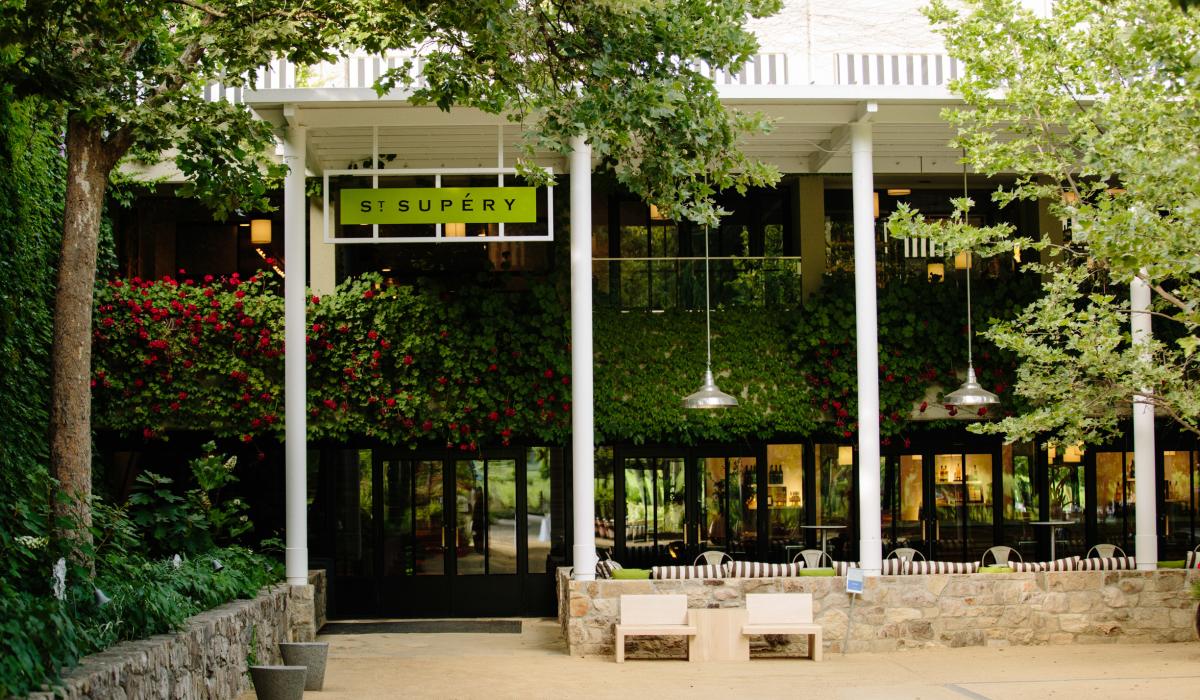
St. Supéry Estate Vineyards and Winery
Tres Sabores
A 2023 winner of the Great Wine Capitals Sustainable Wine Tourism Practices, Tres Sabores owner and winemaker Julie Johnson has been on the forefront of sustainability, living on a certified organic farm for 30 years. Located on Napa Valley’s Rutherford Bench, Tres Sabores grows dry-farmed, organically certified grapes. Tres Sabores utilizes ambient yeast in their fermentation process, and raises Guinea fowl and sheep to serve as lawn mowers and a “mobile fertilization team.”

